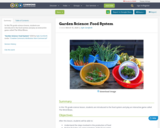
In this 7th grade science lesson, students are introduced to the food system and play an interactive game called The Wind Blows.
- Material Type:
- Activity/Lab
- Date Added:
- 02/12/2014

In this 7th grade science lesson, students are introduced to the food system and play an interactive game called The Wind Blows.

In this 6th grade science lesson, students are introduced to the garden as a classroom. They meet the garden staff, tour the garden, learn the basic systems and routines of the garden classroom and are introduced to the Edible Schoolyard life skills and values.
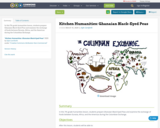
In this 7th grade humanities lesson, students prepare Ghanaian Black-Eyed Peas and examine the exchange of foods between Eurasia, Africa, and the Americas during the Columbian Exchange.
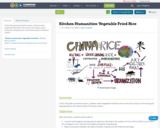
In this 7th grade humanities lesson, students make Vegetable Fried Rice and connect the surplus of rice during the Song Dynasty to the advancement of Chinese culture.
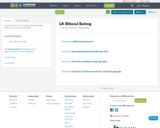
To get students to start thinking about food trade. Where does our food come from?
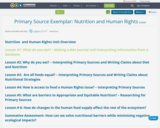
In this unit, students examine the question: How does access to a specific diet (nutrition) impact human rights? As students explore biological information on how the human body uses food as a source of energy, they will explore the Universal Declaration of Human Rights (UDHR) document, to examine the crucial question of how access to a proper diet is related to a person’s rights.